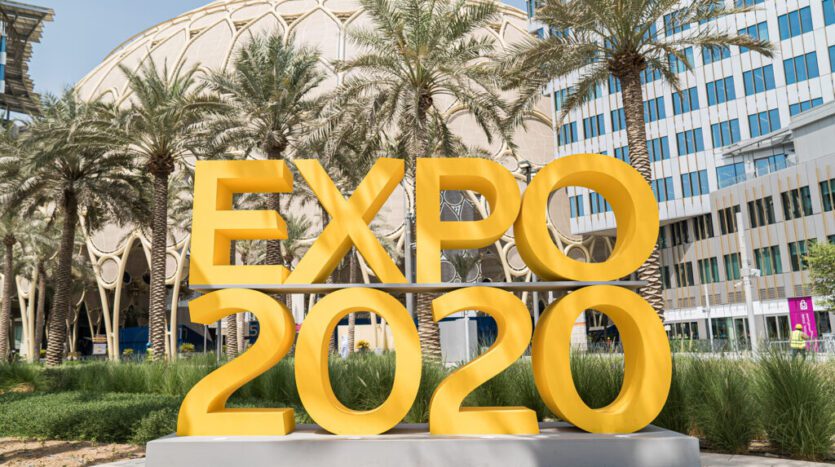The Impact of Expo 2020 on Dubai Real Estate
Introduction
In 2020, the world eagerly awaited the commencement of Expo 2020 in Dubai, envisioning a global spectacle of innovation, culture, and economic vibrancy. As the event unfolded and eventually concluded, the echoes of its impact continued to resonate, particularly in one of Dubai’s key sectors: real estate. In this blog, we delve into the ramifications of Expo 2020 on Dubai’s real estate landscape, exploring the shifts, trends, and opportunities that emerged in 2023 as a result.
Expo 2020: Catalyst for Growth Dubai’s successful hosting of Expo 2020 served as a catalyst for various sectors, with real estate standing prominently among them. The infrastructural developments, heightened global exposure, and influx of visitors during the Expo period laid the groundwork for a sustained surge in the real estate market.
- Infrastructural Investments: The infrastructural projects undertaken in preparation for Expo 2020 significantly enhanced Dubai’s appeal as a real estate destination. Expanded transportation networks, such as the Dubai Metro extension and improved road infrastructure, not only facilitated Expo-related activities but also improved connectivity to key residential and commercial areas. These developments positioned certain districts as prime real estate hubs, driving up demand and property values.
- Heightened Investor Confidence: Expo 2020 acted as a litmus test for Dubai’s resilience and capability to host large-scale international events. The successful execution bolstered investor confidence, both domestic and international, in Dubai’s real estate market. This confidence translated into increased investments across various segments, including residential, commercial, and hospitality properties.
- Sustainable Development Initiatives: Expo 2020 showcased Dubai’s commitment to sustainability through initiatives like the Sustainability Pavilion and sustainable urban planning projects. These endeavors not only aligned with global sustainability trends but also propelled the adoption of eco-friendly practices within the real estate sector. Consequently, properties boasting sustainable features witnessed heightened demand and premium pricing in 2023.
Trends in Dubai Real Estate Post-Expo 2020 As Expo 2020 drew to a close, the momentum it generated continued to reverberate throughout Dubai’s real estate landscape, manifesting in several notable trends:
- Shift Towards Integrated Communities: The Expo experience emphasized the appeal of integrated communities offering a blend of residential, commercial, and leisure amenities within close proximity. In response, developers shifted their focus towards creating master-planned developments that catered to the diverse lifestyle needs of residents. These integrated communities emerged as sought-after destinations, commanding premium prices in the market.
- Rise of Co-living and Co-working Spaces: The evolving preferences of the workforce, particularly millennials and Gen Z, spurred the emergence of co-living and co-working concepts in Dubai. Expo 2020, with its emphasis on collaboration and innovation, accelerated the acceptance of these shared living and working arrangements. As a result, developers began integrating such spaces into their projects, catering to the growing demand for flexible and community-centric environments.
- Technology Integration: Expo 2020 showcased the transformative potential of technology across various sectors, including real estate. In 2023, technology integration became ubiquitous within Dubai’s real estate ecosystem, driving efficiency, transparency, and enhanced customer experiences. Innovations such as virtual property tours, block chain-based transactions, and smart home solutions gained traction, reshaping the way properties were marketed, transacted, and managed.
Opportunities on the Horizon Looking ahead, Expo 2020’s legacy presents a multitude of opportunities for stakeholders in Dubai’s real estate sector:
- Diversification of Offerings: The exposure garnered during Expo 2020 has positioned Dubai as a global hub for innovation, culture, and commerce. Capitalizing on this reputation, developers have the opportunity to diversify their offerings beyond traditional residential and commercial properties. Projects focusing on niche sectors such as wellness retreats, cultural districts, and experiential retail spaces are poised to attract both investors and end-users seeking unique experiences.
- Sustainable Development as a Competitive Advantage: With sustainability increasingly becoming a priority for investors and tenants alike, developers have the opportunity to differentiate their projects through sustainable design and practices. Leveraging renewable energy sources, implementing green building standards, and prioritizing conservation efforts can not only reduce environmental impact but also enhance long-term asset value and marketability.
- Embracing Technological Advancements: The technological advancements showcased at Expo 2020 have set a precedent for innovation within the real estate sector. Embracing emerging technologies such as artificial intelligence, augmented reality, and Internet of Things (IoT) presents opportunities to streamline processes, personalize experiences, and stay ahead of evolving market dynamics. By embracing innovation, stakeholders can position themselves at the forefront of the industry’s transformation.
Conclusion:
The conclusion of Expo 2020 marked not an end, but a new beginning for Dubai’s real estate sector. The legacy of the event, characterized by infrastructural advancements, heightened investor confidence, and a commitment to sustainability and innovation, continues to shape the market dynamics in 2023 and beyond. As stakeholders navigate the evolving landscape, embracing emerging trends, seizing opportunities, and staying attuned to shifting consumer preferences will be key to unlocking the full potential of Expo 2020’s impact on Dubai’s real estate.

